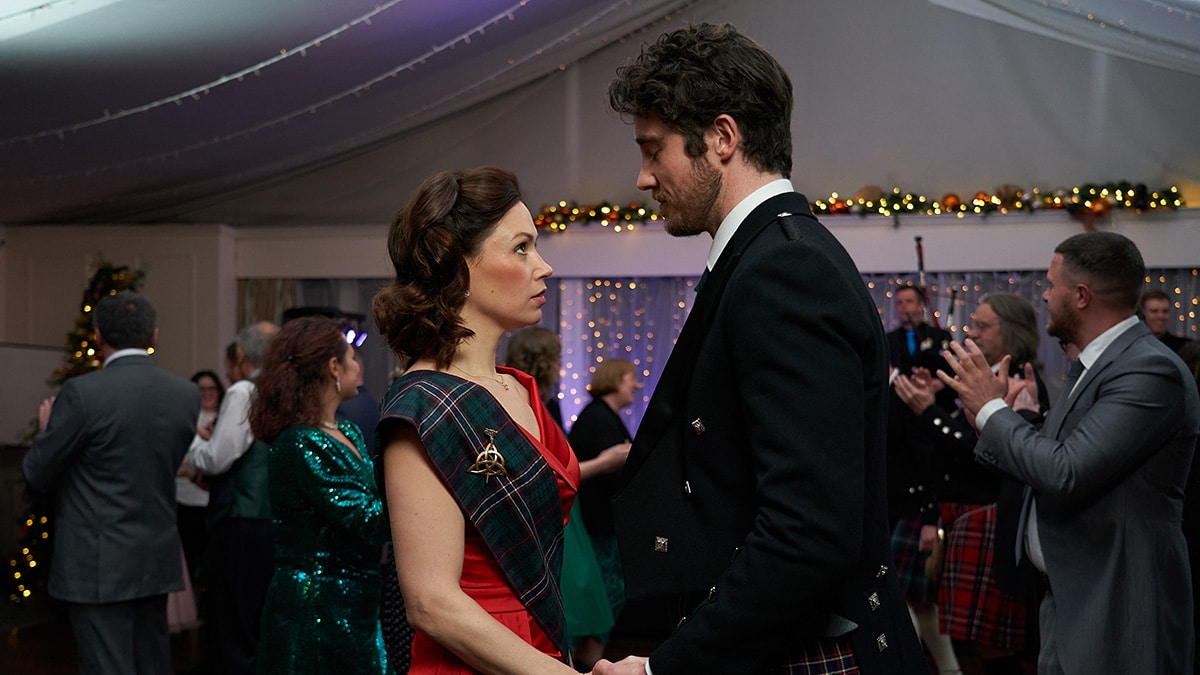Football
Scottish football is being let down by VAR. It’s time to get rid

We had a superb football match on Sunday, the Premier Sports Cup Final, live on TV worldwide with subscription. Two teams riding high in European competition put on an advert not just for Scottish football but football in general. With the Scotland national team also performing well, the game in Scotland looks to be in good shape.
Two teams played the game in good spirit and were well disciplined: dare I say it the referee had a good game too.
Why then the post-match incrimination and worldwide shaking of heads? VAR of course and in particular, that penalty.
In real time the referee some 30 yards away rightly gave a foul. From the upper decks it was impossible to say if the foul was inside the box. particularly as the vagaries of when the foul actually took place and when did the referee blow to stop play.
Without VAR the outcome would maybe have been that the referee got it wrong in an impossible case of getting it right at pitch level and at that speed.
However, we have VAR. This elevates a genuine human error to wherever people want it to go. This is wrong on so many levels. VAR cannot be 100% failure-proof.
I have no doubts in the integrity of every match official, however if you have VAR surely mistakes should be fewer. The officials on the pitch and in the VAR room are not being afforded sufficient protection from an inadequate system.
Is there a need for VAR now the honeymoon period is over?
VAR has resulted in referees and linesmen not making decisions, supposedly because VAR will catch it. This is a wrong assumption and it is resulting in standards falling.
At the moment Scottish football is paying £1.2 million per season for this benefit. I am sure this could be better spent on, say, officials’ remuneration levels and training, young persons’ structures or greater fan participation.
In today’s society there are many areas where we are being asked to believe ideologies, policies and judgments which we just can’t comprehend with our senses. Don’t let VAR become another tool for this.
Scrap VAR now and let’s get back to basics.
Kenny Watson, Renfrew.
Read more letters
Shame on the football thugs
THANK you to Neil Mackay for voicing what many of us think about the people who masquerade as football fans (“Humiliate them. Ruin them. Stamp on those feral Old Firm ultras, hard”, The Herald, December 19).
I live near Glasgow Cross and residents there are already considering getting out of the city for the day when Celtic “fans” decide to “celebrate” their team’s victories this season. In recent years this has involved gathering at Glasgow Cross, throwing fireworks and pyrotechnics up in the air, sometimes hitting residential windows as high as eight floors up, climbing up the Mercat Cross, on the overhead railway line, on the roof over the Argyle Line, urinating, defacating, vomiting, scrawling graffiti and leaving local residents and the city council to clear up their mess. People might also remember a few years ago when Rangers “fans” took over George Square with similar “high jinks”.
Thank goodness that after the events of last Sunday, it is now being seen for what it is: frightening behaviour that brings shame on this city, which has so many good things going for it. It is certainly time that the football clubs not only controlled these people but also arranged events where the real fans, young and old alike, can celebrate the successes, on the pitch, of the teams that they support week after week.
Patricia Fort, Glasgow.
Religion won’t solve our problems
I DIDN’T really want to enter into this argument, but some of the letters (December 18 & 19) in response to Neil Mackay’s column (“Dear religious folk: Sorry, but Santa is just as real as your ‘god’”, The Herald, December 17) oblige me to throw in some thoughts.
Wasn’t Santa Claus a name altered from Saint Nicholas? As my childhood memory serves, he was the original model for Santa caring for poor and suffering children.
As for Jesus Christ, I formed the view many years ago that he was similar to Siddhartha Gautama, the Buddha. The Buddha retired from his society and sought and found enlightenment which he then taught through his many teachings on suffering and what must be done to move on from the causes of this mental condition.
Likewise, Jesus spent “40 days and 40 nights” in the desert and found many truths appropriate to his society at that time. He related his own enlightenment to the beliefs in Judea some 2,000-plus years ago. He taught and preached his path to those who wanted to listen and find a better way. There was 500 years between each of these “teachers”.
There are many examples of enlightened teachers throughout history and perhaps in the present, but humanity has shown, like right now in this present age, that it is incapable of following the teachings of great minds to create a peaceful and beneficial path that works for the whole planet. Greed and inconsideration seem to dominate and I don’t think that any religion or following will ever find an answer.
Ian Gray, Croftamie.
BBC moving with its audience
ALISON Rowat (“Change coming at BBC Scotland, but is that the best they can do?” The Herald, December 19) claims that, here at BBC Scotland, “the main broadcaster will be cutting its news coverage by half” as part of our plans for new news content on the BBC Scotland channel. As we highlighted to our regulator Ofcom, BBC Scotland produces around 5,000 hours of news a year on TV, radio, iPlayer and Sounds, in English and Gaelic. Removing 125 of these hours is not half of 5,000.
Meanwhile, to judge the totality of our news coverage via TV alone, when around five million unique users now access the BBC Scotland news website every week, would be like judging a newspaper’s performance purely through sales of print editions. Our new news programme and podcast will be an important part of a much wider mix of BBC news content, across multiple platforms, where our audience now expects us to be. We will continue to move with our audience, as they rightly demand.
Luke McCullough, Head of Corporate Affairs, BBC Scotland, Edinburgh.

People are still smarter
IT seems the public have rejected the idea of “smart” buses, after it was announced that the experimental driverless service between Edinburgh and Fife is being scrapped due to lack of passengers (“Driverless bus scheme axed over passenger numbers”, heraldscotland, December 17).
The claimed world-first driverless coaches, which required two drivers on board even when operating autonomously, will now be withdrawn due to low demand.
Like so many other “smart” devices, which on closer inspection often turn out to be not quite so smart – or even necessary – after all, it is heartening that people can still spot a bad idea when they see one.
In our age of technological obsession, there is no substitute for human ability, and the common sense to use it.
David Gray, Haddington.










